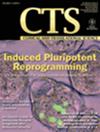From organs to algorithms: Redefining cancer classification in the age of artificial intelligence
IF 3.1
3区 医学
Q2 MEDICINE, RESEARCH & EXPERIMENTAL
引用次数: 0
Abstract
Traditional cancer classification based on organ of origin and histology is increasingly at odds with precision oncology. Tumors in different organs can share molecular features, while those in the same organ can be heterogeneous. This disconnect impacts clinical trials, drug development, and patient care. Recent advances in artificial intelligence (AI), particularly machine learning and deep learning, offer promising avenues for reclassifying cancers through comprehensive integration of molecular, histopathological, imaging, and clinical characteristics. AI-driven approaches have the potential to reveal novel cancer subtypes, identify new prognostic variables, and guide more precise treatment strategies for improving patient outcomes.
从器官到算法:在人工智能时代重新定义癌症分类
传统的癌症分类以原发器官和组织学为基础,这与精准肿瘤学越来越不相符。不同器官中的肿瘤可能具有相同的分子特征,而同一器官中的肿瘤可能具有异质性。这种脱节影响了临床试验、药物开发和患者护理。人工智能(AI)的最新进展,尤其是机器学习和深度学习,为通过全面整合分子、组织病理学、成像和临床特征对癌症进行重新分类提供了大有可为的途径。人工智能驱动的方法有可能揭示新的癌症亚型,确定新的预后变量,并指导更精确的治疗策略,从而改善患者的预后。
本文章由计算机程序翻译,如有差异,请以英文原文为准。
求助全文
约1分钟内获得全文
求助全文
来源期刊

Cts-Clinical and Translational Science
医学-医学:研究与实验
CiteScore
6.70
自引率
2.60%
发文量
234
审稿时长
6-12 weeks
期刊介绍:
Clinical and Translational Science (CTS), an official journal of the American Society for Clinical Pharmacology and Therapeutics, highlights original translational medicine research that helps bridge laboratory discoveries with the diagnosis and treatment of human disease. Translational medicine is a multi-faceted discipline with a focus on translational therapeutics. In a broad sense, translational medicine bridges across the discovery, development, regulation, and utilization spectrum. Research may appear as Full Articles, Brief Reports, Commentaries, Phase Forwards (clinical trials), Reviews, or Tutorials. CTS also includes invited didactic content that covers the connections between clinical pharmacology and translational medicine. Best-in-class methodologies and best practices are also welcomed as Tutorials. These additional features provide context for research articles and facilitate understanding for a wide array of individuals interested in clinical and translational science. CTS welcomes high quality, scientifically sound, original manuscripts focused on clinical pharmacology and translational science, including animal, in vitro, in silico, and clinical studies supporting the breadth of drug discovery, development, regulation and clinical use of both traditional drugs and innovative modalities.
 求助内容:
求助内容: 应助结果提醒方式:
应助结果提醒方式:


